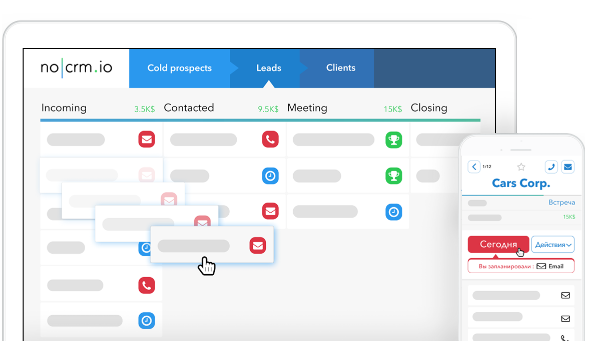
In the modern business world, telemarketing continues to play a vital role in reaching potential customers and clients. But even the best salespeople among us need a strong framework to succeed, and when it comes to telemarketing, that framework is the script.
At a high level, it provides a structured conversation for salespeople to follow with their prospects. In reality, though, a seriously good telemarketer script goes way beyond the words on the page. It lays out a strategic roadmap with one tangible target in its sights: boosting your conversions and helping you close more deals.
Writing a great telemarketer script is easier said than done, however. Read on to learn what to do and what not to do as you craft a script that helps you stand out from the crowd.
Creating an Effective Telemarketer Script
The Opening
First impressions aren’t quite everything in sales—but they’re pretty darned close. It takes most prospects just 7 seconds (!) to decide whether they want to stay on the phone with you.
The best way to get through the opening stage of the call is to politely introduce yourself and clearly state why you’re calling. It’s not just courtesy; it’s about making it clear that you have no interest in wasting your prospect’s time by beating around the bush.
Engaging the Prospect
As the call progresses, it’s crucial that you engage the prospect as much as possible. This means actively listening and responding in a way that demonstrates a clear understanding of what has been said.
To that end, open-ended questions are a great way to continue the dialogue and gather more information on the prospect’s needs and wants.
Introducing Your Product or Service
When it comes time to remind the prospect you’re selling them something, avoid jargon as much as you can. Instead, try to be as clear and concise as possible about how it solves a problem they’re facing.
Feel free to get granular with details, too—it doesn’t just show you understand what you’re selling, it proves you’ve been paying close attention throughout the call.
Addressing Customer Needs
Don’t be afraid to get industry-specific when you’re writing this part of your telemarketer script. After all, the general set of problems faced by mechanics is very different from the top pain points that B2B software providers deal with.
By tailoring your telemarketing script to be specific to the industry you’re selling to, you can take even more guesswork out of the interaction.
Handling Objections
Objections raised by a prospect can actually be considered a good thing, because they give you the perfect opportunity to build trust and assuage any doubts.
If your telemarketer script has solid responses built in for the most common objections, you won’t flounder when you face them out in the wild.
Follow Up Steps
Whether or not the call ended with a sale or not, it’s vital to leave things on a positive note. Your sign-off should always make it easy for the prospect to get back in touch if their circumstances change.
And if the call did result in a sale, then you’ll need to have your follow-up ready to go. Whether this means scheduling another call or firing over an email, it never hurts to have these steps written out in plain English. The ideal time to strike is while the iron is hot, of course, so by having your after-call follow-up prepared ahead of time, you’re giving yourself the best possible chance of bringing the deal home.

Avoiding Common Mistakes
Now that you know what to do, let’s take a brief look at what not to do.
Monotone Delivery
Nothing kills the conversational mood like a monotonous delivery. You’re talking over the phone, without micro-expressions and body language to help you communicate your message, so your voice needs to be extra-expressive to compensate.
Not Listening Actively
Humans have become experts at sniffing out people who aren’t really interested in what they’re saying. There’s no way to fake active listening—you’re either doing it or you aren’t, and if you aren’t doing it, you’re not kidding anybody.
Hyper-focusing On The Script
Focusing on the script to the exclusion of the conversation itself is a common mistake. It can be tempting to rely on the document in front of you, but remember that telemarketer scripts exist to serve effective conversations, not the other way around.
Leveraging the Right Tools
If all of the above sounds like a lot to keep track of, don’t worry. Creating effective telemarketer scripts is anything but straightforward.
Fortunately, there are tools you can use to make your life easier, like the Sales Script Generator. Designed by sales professionals, for sales professionals, it gives you drag-and-drop modular blocks you can use to easily build a compelling narrative while asking the right questions at the right times. Best of all, it’s completely free—you can try it out yourself here.

Sample Telemarketing Script
Check out this sample telemarketer script we’ve created to give you a rough idea of what to go for.
Introduction
“Hi there, I’m [agent’s name] from [company’s name]. How’s your day going?”
Purpose of Call
“I wanted to chat with you about our [specific product or service]. We’ve got some cool new features that I think you might find really useful.”
Engaging the Prospect
“Just curious, how do you currently handle [relevant business need or challenge]?”
Presenting the Offer
“Our [product/service] can really help with [specific benefits, like saving time or cutting costs]. For example, [mention a relevant feature or a quick success story].”
Handling Objections
If the prospect has doubts: “I totally get where you’re coming from. A lot of our clients felt the same at first, but they found that [offer a solution or counterpoint].”
Closing
“Would you be up for a more detailed chat or maybe a quick demo to see how [product/service] can fit into your workflow? We can set up a time that works for you.”
Follow-Up
“Thanks for taking the time to talk! I’ll shoot over an email with more details. And hey, if any questions pop up, feel free to reach out anytime.”
FAQ
Telemarketing is a direct marketing approach where sales representatives use the phone to contact potential customers to promote products or services.
An effective telemarketing script includes a clear introduction, engaging questions, concise product information, addresses customer needs, handles objections, and outlines follow-up steps.
Common mistakes include monotonous delivery, not listening actively, and adhering too rigidly to the script without adapting to the conversation.


